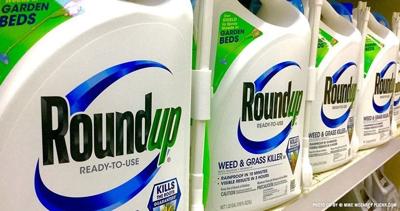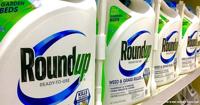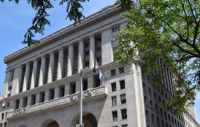
PHILADELPHIA - Jurors felt pressured to punish us, Monsanto is telling the Pennsylvania Supreme Court in a case that could also determine the future of hundreds of lawsuits over the weedkiller Roundup in the state.
The company on Aug. 14 asked the high court to review Ernest Caranci's $175 million verdict, awarded by a Philadelphia jury that was already nearing the end of its rope before being told on a Friday that a failure to agree would keep them on jury duty until well into the following week, the company says.
Likening the situation to a case from the 1930s during which a court officer told a jury it would "get the devil" from the trial judge if it did not return a verdict soon, Monsanto attacked the state Superior Court's decision in May to not strike the jury vote based on improper ex parte communication.
A common-sense approach is needed to decide whether a court officer telling jurors there would be no mistrial until they deliberated for three more days resulted in a "reasonable possibility of prejudice," considering Monsanto had no knowledge of that statement, the company says.
"That standard is easily met where, as here, a typical juror could feel pressured to reach a verdict based on the threat of being called back for several more days before a mistrial would be declared," attorneys for the company wrote.
"Yet the Superior Court avoided that straightforward conclusion by adopting a rigid test based on whether the communication was 'emotional' or related to a 'central issue in the case,' and by caricaturing a coercive threat to return for more deliberation as a mere matter of 'court procedure.'"
Bayer bought Monsanto in 2018 and the two now face tens of thousands of claims in various courts that the glyphosate in Roundup causes non-Hodgkins lymphoma. They've settled two-thirds of cases for about $11 billion, but plenty remain. Bayer recently asked the U.S. Supreme Court to hear one of them.
When deliberations began in Caranci's case after a long trial, a member of court staff was asked if 10 yes or no votes was enough for a verdict. They told jurors it was, and if that didn't happen that Friday, they'd have to come back for deliberations each day until Wednesday, when a mistrial would be declared.
A juror questioned by Monsanto said that information shifted the tone of the deliberations, with one juror declaring he would not come back past Friday. Monsanto said the jury had been stuck on a 9-3 vote before.
The Superior Court rejected the idea that the trial court needed to hold a hearing on what happened during deliberations, writing in a footnote that it would "unfairly burden jurors who have already given much time to participate in the trial."
Monsanto also claimed the trial was stacked for the plaintiffs because it could not show studies that say glyphosate is not a carcinogen while the judge allowed a controversial study from the International Agency for Research on Cancer saying it is to be introduced.
Chris Portier was the chairman on the International Agency for Research on Cancer, which kickstarted litigation in 2015 when it became the only group to find glyphosate is a probable carcinogen. He later left the IARC to work as an expert for plaintiff lawyers.
Monsanto last year won a ruling in the Third Circuit, which Pennsylvania federal courts are in, that said Roundup does not need a cancer warning. State courts refusing to acknowledge that decision is causing confusion, Monsanto says.
Selling a widely used product with a federally approved label shouldn't open Monsanto to this kind of danger in court, the company added.
"Federal law required Monsanto to use the EPA-approved label, which omits a cancer warning," Monsanto says. "Indeed, EPA has gone further, telling Monsanto that adding a cancer warning to EPA's label would be 'false and misleading' and violate (federal law).
"This is not just a matter of degree like CAUTION and DANGER - the state and federal requirements are diametrically opposed."
The verdict was a trio of losses that started Monsanto's trial experience in the Philadelphia Court of Common Pleas. The others were valued at $3.5 million and $2.2 billion, which was later reduced to $404 million.
Caranci's verdit was made up of $25 million in compensatory damages and $150 million in punitive damages. The court is notorious in the business community for giving out huge awards and has been named the No. 1 Judicial Hellhole in the country by the American Tort Reform Association.
Though the company has had success in trials, i was also hit with a $78 million verdict in Philadelphia with nearly all of it consistering of punitive damages. Recently, the trial judge reduced those damages by more than 60%.








